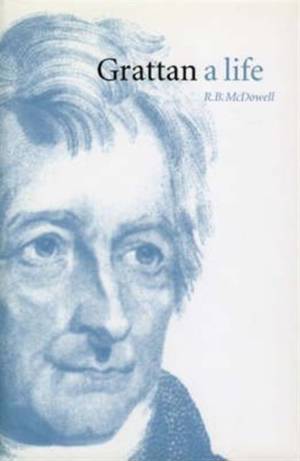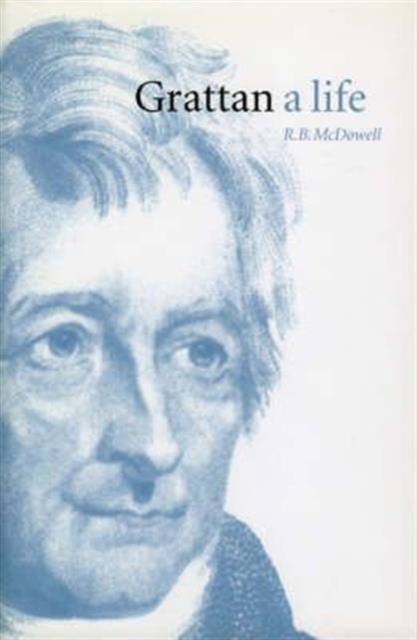
Bedankt voor het vertrouwen het afgelopen jaar! Om jou te bedanken bieden we GRATIS verzending (in België) aan op alles gedurende de hele maand januari.
- Afhalen na 1 uur in een winkel met voorraad
- In januari gratis thuislevering in België
- Ruim aanbod met 7 miljoen producten
Bedankt voor het vertrouwen het afgelopen jaar! Om jou te bedanken bieden we GRATIS verzending (in België) aan op alles gedurende de hele maand januari.
- Afhalen na 1 uur in een winkel met voorraad
- In januari gratis thuislevering in België
- Ruim aanbod met 7 miljoen producten
Zoeken
Omschrijving
'Grattan's Parliament' has a permanent place in Irish historical lore, but who was Henry Grattan? R.B. McDowell's biography traces the varied career of this elusive figure whose political fortunes were as tempestuous as his own character. McDowell begins with Grattan's family background and his brilliant early years in the Irish House of Commons, during which, at the age of thirty-six, he achieved his greatest triumph: the granting of 'legislative independence' to that body. Many of the years of 'Grattan's Parliament' were years of opposition for Henry Grattan, whose talent was for oratory - sometimes scurrilous, sometimes sublime - rather than for administration. McDowell documents Grattan's epic political struggle with Henry Flood for control over the soul of the Irish 'patriot' faction, and gives a rich description of the atmosphere of the Dublin parliament during these heady years. After the passage of the Act of Union, Grattan made a dramatic political comeback as a Westminster MP. There he became the outstanding parliamentary advocate of Catholic emancipation, but he often clashed with Daniel O'Connell and other Catholic leaders because of his continuing support for a Crown veto over appointments to Catholic bishoprics - a measure he believed necessary to make emancipation politically palatable. He remained a vigorous parliamentarian until well into his seventies. R.B. McDowell ends this magisterial biography - based on intensive study of original source material - with a dazzling survey of the ways in which Grattan has been written about by scholars and remembered by posterity.
Specificaties
Betrokkenen
- Auteur(s):
- Uitgeverij:
Inhoud
- Aantal bladzijden:
- 290
- Taal:
- Engels
Eigenschappen
- Productcode (EAN):
- 9781901866728
- Verschijningsdatum:
- 20/11/2001
- Uitvoering:
- Hardcover
- Formaat:
- Genaaid
- Afmetingen:
- 160 mm x 240 mm
- Gewicht:
- 1000 g

Alleen bij Standaard Boekhandel
+ 81 punten op je klantenkaart van Standaard Boekhandel
Beoordelingen
We publiceren alleen reviews die voldoen aan de voorwaarden voor reviews. Bekijk onze voorwaarden voor reviews.









